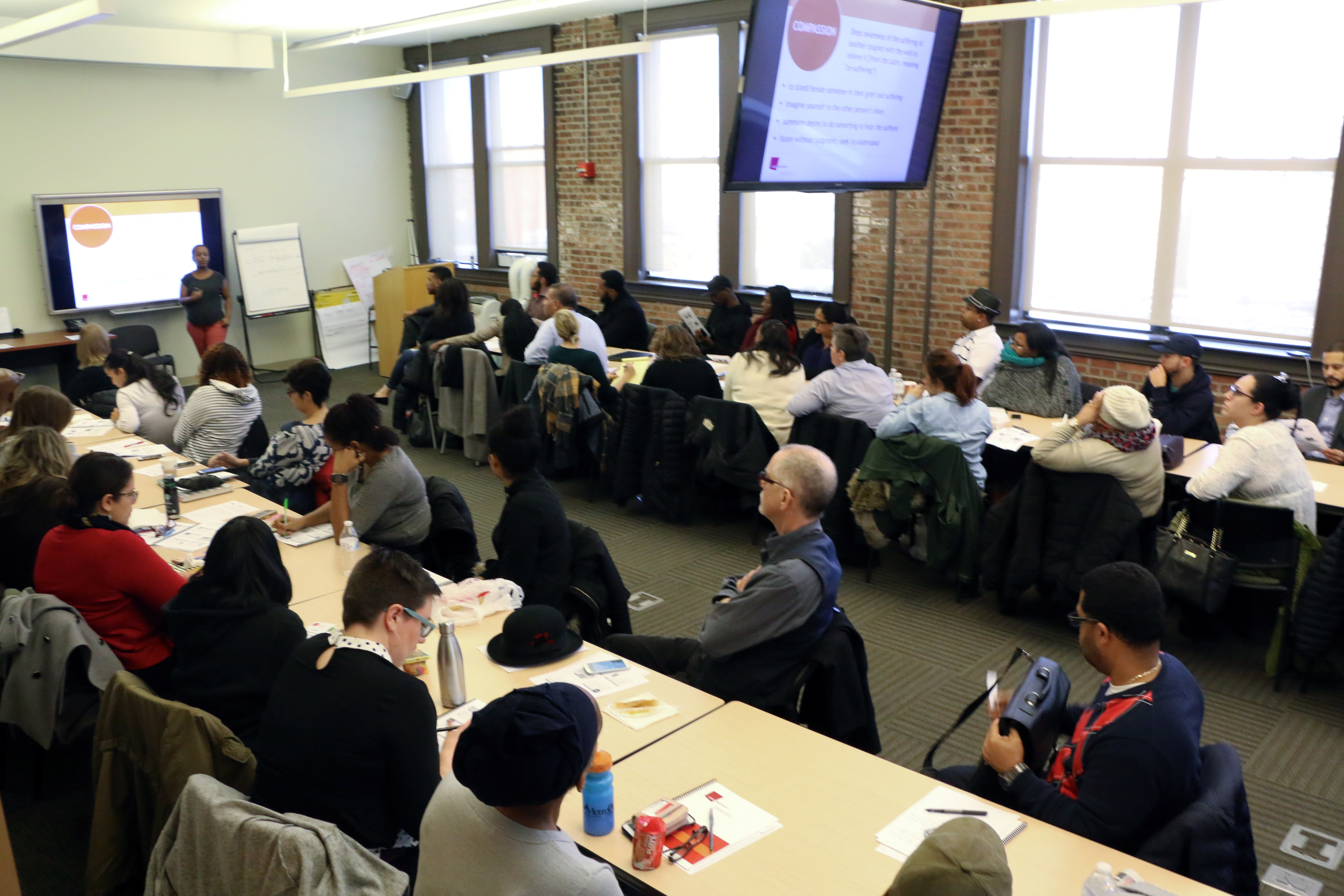Blog

Closing the Knowledge Gap on HIV and Mental Health
May 24, 2018For six years, our Training Institute has worked with the Department of Health and Mental Hygiene (DOHMH) to train professionals working at organizations funded through the Ryan White Program. Through this partnership, the Institute has deeply impacted a number of social service providers working with people living with HIV and expanded their knowledge on topics around mental health awareness.
The Ryan White Program works with cities, states and local community-based organizations to provide HIV care and treatment. Enacted in 1990, the program is run by the US Department of Health and Human Services, the Health Resources and Services Administration and the HIV/AIDs Bureau.
DOHMH reached out to CUCS to facilitate trainings with the Ryan White funded organizations because of our expertise in working with people with mental illness.
“What they are finding is that many people living with HIV have mental health issues, and people with mental illness are often more vulnerable to contracting HIV than others. This makes it important for professionals working with this population to be knowledgeable in issues around mental health,” explains Rudy de la Haya, our Assistant Director of Training.
CUCS offers six trainings to care coordination, mental health coordination and harm reduction staff at the various providers. These trainings range in topic, teaching people how to identify different mental health diagnosis, use motivational interviewing techniques to work with people through behavioral changes and navigate the mental health system.
One of the most important trainings, Rudy says, is one that explores the impact of HIV on mental health. Being diagnosed with HIV can be a traumatic experience for many, and can have a tremendous impact on their mental health. This training specifically breaks down the link between an HIV diagnosis and mental health, and helps people understand where these two intersect. “It is extremely important to understand this intersection to be an effective support system for clients,” says Rudy.
Over the course of the partnership, our Institute trainers have received overwhelmingly positive feedback. Attendees come away with an expanded knowledge on mental health issues that will help them better serve the people they work with.
This partnership has allowed CUCS’s Institute to not only impact a wide range of social service providers, but also expand their knowledge base. “When I developed these trainings for the Ryan White programs, I had to become a lot more familiar with topics relevant to people with HIV and the impact of HIV on mental health. I think any time we can work with populations outside of our training norm it is a good thing. It helps us learn more about different issues and broaden our expertise,” explains Rudy.
